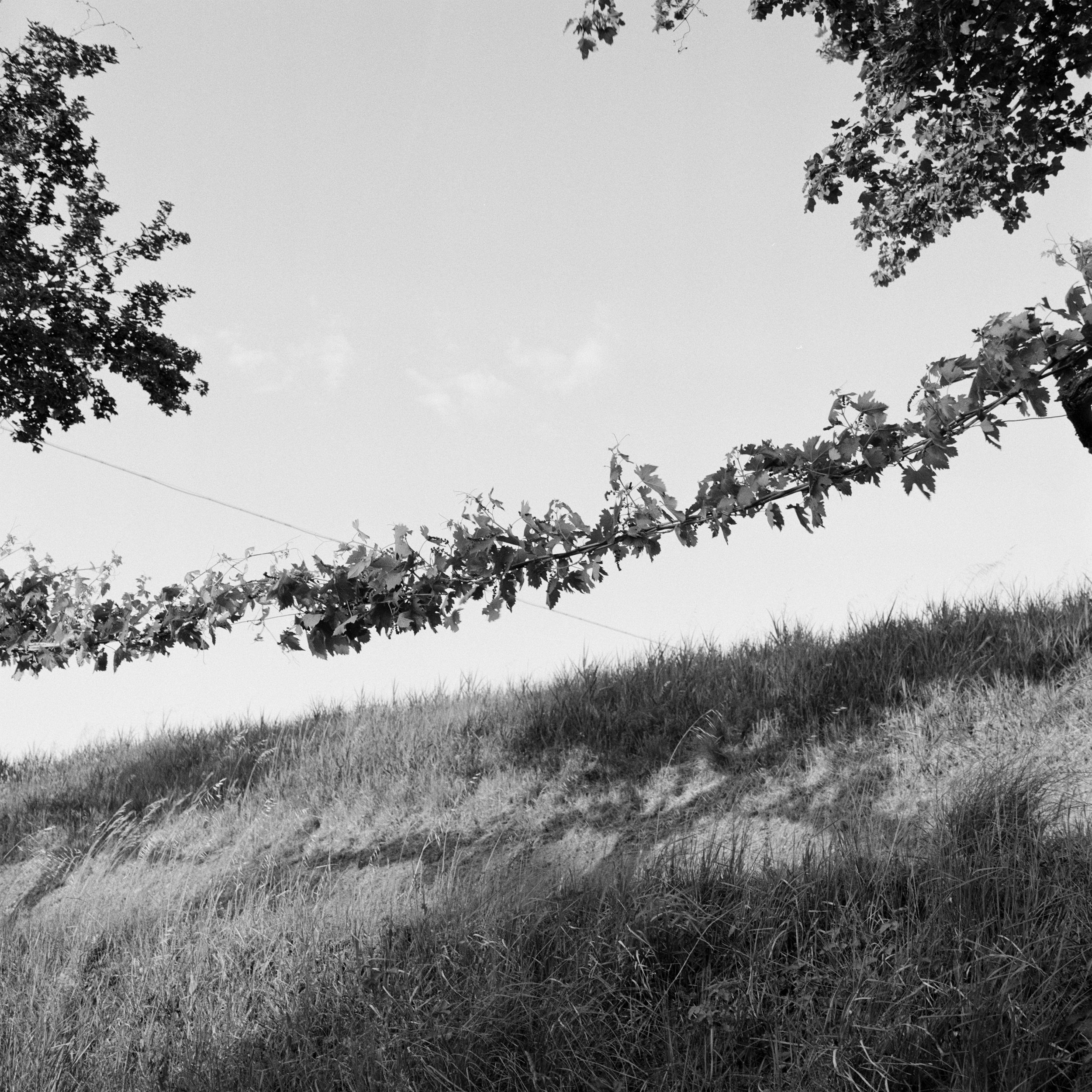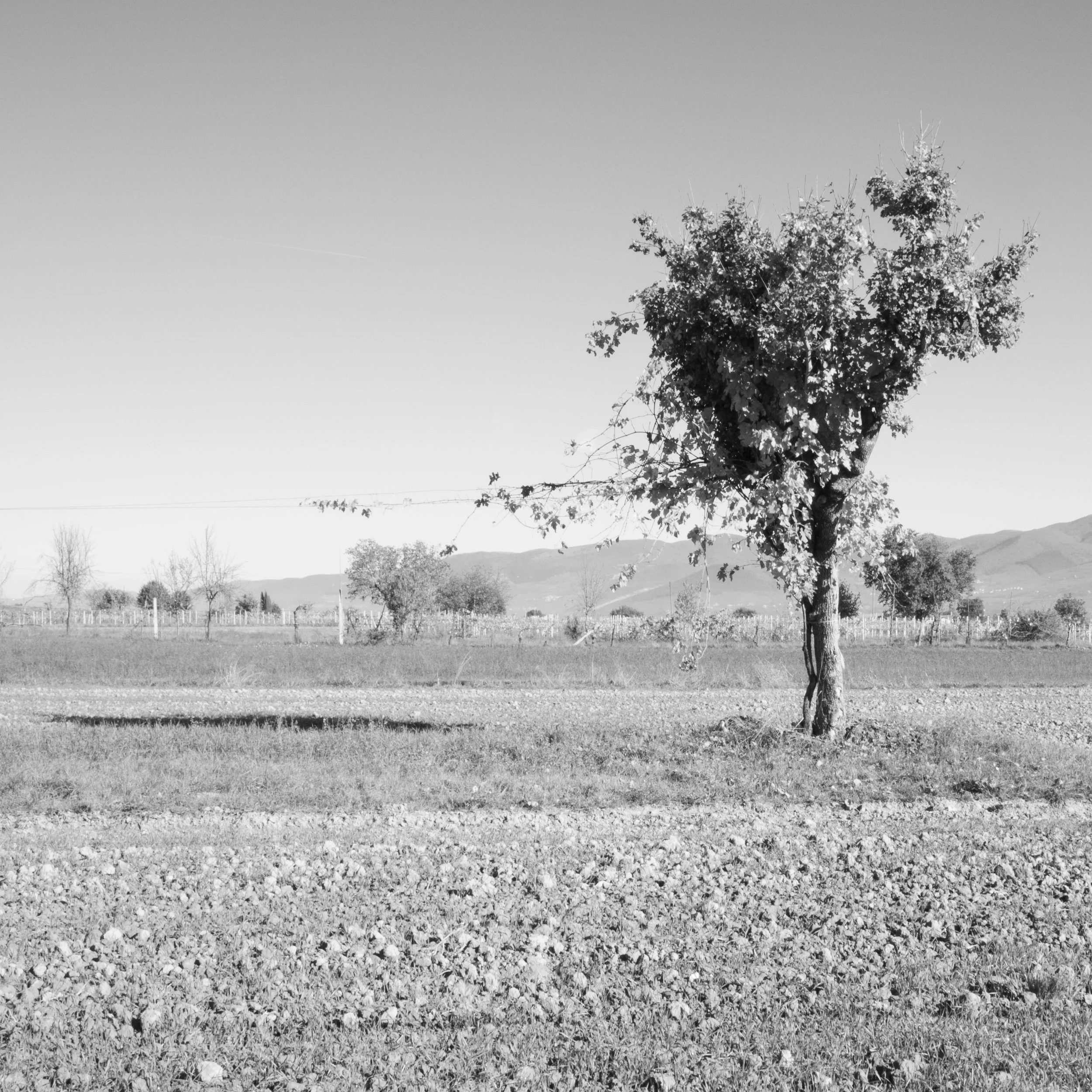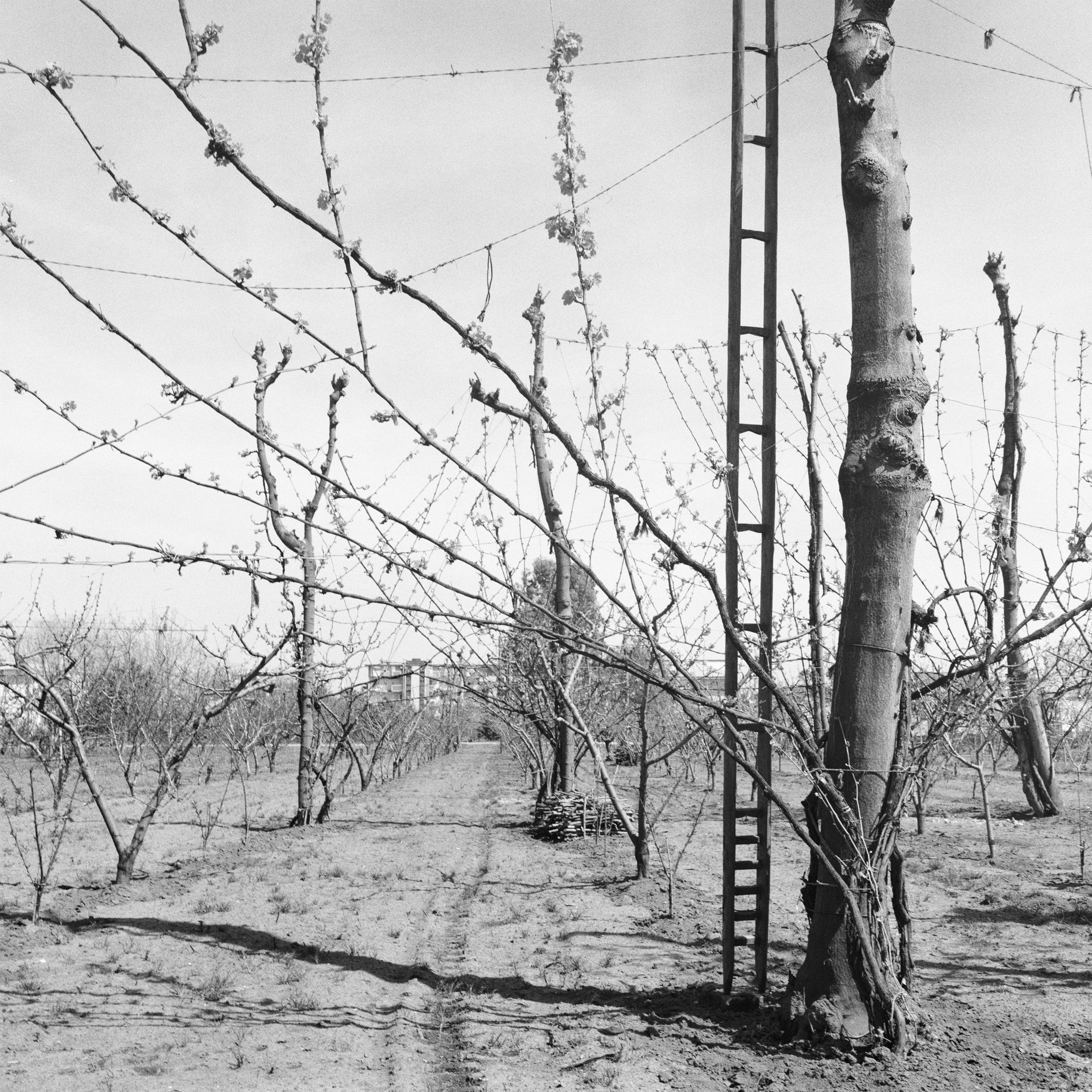Promiscuous Cultures, 2022 - ongoing
This project originated during a year-long Rome Prize fellowship at the American Academy in Rome. It examines the persistence of the coltura promiscua, an ancient form of mixed farming notable for its biological diversity and climate resilience. The coltura promiscua was a defining feature of the rural landscape of central Italy until it was largely eradicated in the 1960’s by monocultural farming systems, and although it has been proclaimed lost, it has not been entirely erased. Fragments of this highly integrated system of trees, grape vines, and arable crops still remain. The coltura promiscua has been characterized as an “unproductive” tradition of the past, even though it is exceptionally life-sustaining and future oriented. As an indigenous farming tradition, it demonstrates an alternative to monocultural production, one that weaves together culture and cultivation to maximized fertility, biodiversity, and climate resilience.
Extensive mapping of existing remnants is ongoing. The project combines photographic documentation, archival materials, and interviews with farmers, agriculturalists, and winemakers.
















